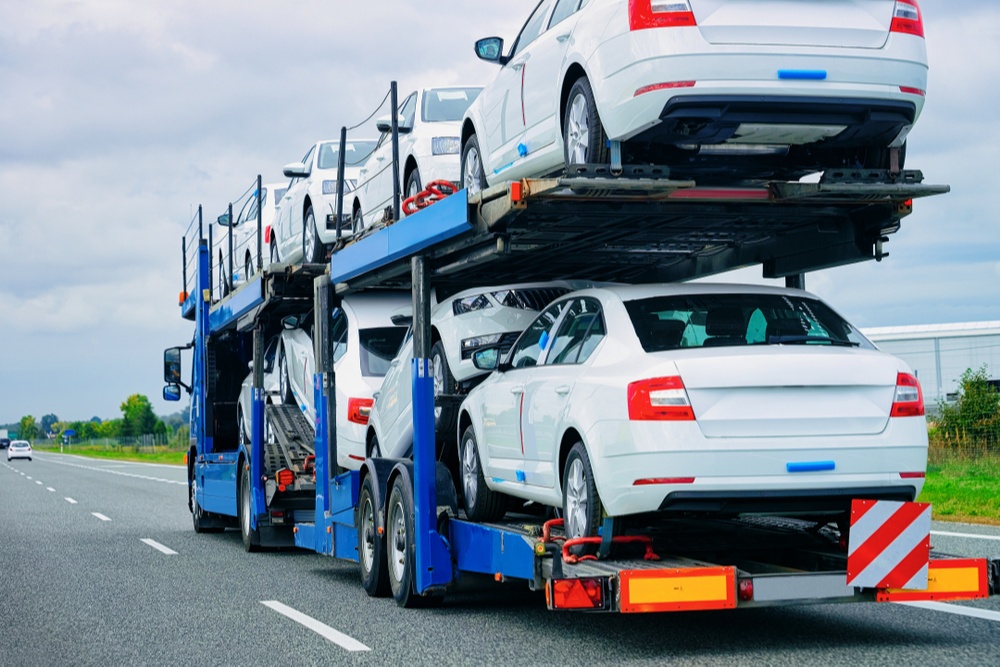Your Guide to Finding Repossessed Cars for Sale
Repossessed cars represent a unique opportunity for buyers seeking quality vehicles at potentially reduced prices. When borrowers default on auto loans, banks and financial institutions reclaim these vehicles, creating an inventory that's later sold through various channels including auctions, dealerships, and direct sales. Understanding how repossession works and where to find these vehicles can help you make an informed purchasing decision while potentially saving thousands of dollars on your next car purchase.

Where to Find Repossessed Car Listings from Certified Sources
Finding legitimate repossessed car listings requires knowing where to look and which sources are trustworthy. Government agencies like the General Services Administration (GSA) regularly auction repossessed federal vehicles, while the U.S. Marshals Service sells cars seized in criminal cases. Local sheriff’s departments also conduct periodic auctions of repossessed vehicles.
Online platforms such as GSA Auctions, GovPlanet, and IAA (Insurance Auto Auctions) offer certified listings with detailed vehicle histories. These platforms provide transparency about each vehicle’s condition, maintenance records, and reason for repossession. Many sites offer virtual inspections and remote bidding options, making it easier to participate from anywhere in the country.
Private companies like Manheim and Copart also host repossessed vehicle auctions, though these typically require dealer licenses or registration fees to participate. Always verify the authenticity of any website or auction house before providing personal information or making payments.
Understanding Cars Repossessed by Banks and Financial Institutions
Banks and credit unions become vehicle owners when borrowers default on their auto loans, typically after 60-90 days of missed payments. These financial institutions prefer to recover their losses quickly rather than hold inventory, making them motivated sellers. Major banks like Chase, Wells Fargo, and Bank of America regularly dispose of repossessed vehicles through established networks.
Credit unions often offer some of the best deals on repossessed cars because they’re non-profit organizations focused on serving members rather than maximizing profits. Many credit unions will sell repossessed vehicles to non-members, though members typically receive first priority and better financing options.
Financial institutions usually provide basic maintenance and safety inspections before selling repossessed vehicles, though the extent varies by institution. These cars often come with clean titles and complete maintenance records, making them more reliable purchases than vehicles from unknown sources.
Accessing Inventory of Recently Repossessed Vehicles
The inventory of recently repossessed vehicles changes constantly as new cars enter the system and others are sold. Most repossession companies and banks update their inventories weekly or bi-weekly, with peak inventory periods typically occurring at month-end and quarter-end when financial institutions close their books.
Timing your search strategically can yield better results. Late fall and early winter often see increased repossession activity due to seasonal economic pressures, while spring and summer typically offer better vehicle selection as people trade up for vacation travel.
Many financial institutions maintain relationships with specific auction houses or resale companies, creating predictable channels for their inventory. Building relationships with these intermediaries can provide early access to newly repossessed vehicles before they reach public auctions.
Finding Repossessed Vehicles Available Through Public Auctions
Public auctions remain the most common way repossessed vehicles reach the market. These events occur regularly in most metropolitan areas, with some regions hosting weekly or monthly sales. Auction houses like Barrett-Jackson, Mecum, and regional operators conduct specialized repossessed vehicle sales alongside their regular inventory.
Most public auctions allow inspection periods before bidding begins, typically lasting 2-4 hours on sale day. Professional inspections are recommended for higher-value vehicles, as most auction sales are final with limited return policies. Successful bidders usually must pay immediately and arrange transportation within 24-48 hours.
Registration requirements vary by auction house but generally include valid identification, proof of funds, and sometimes a small registration fee. Some auctions require pre-registration online, while others accept walk-in registrations on sale day.
Repossessed Car Pricing and Cost Considerations
Understanding the pricing landscape for repossessed cars helps buyers set realistic expectations and budgets. Prices vary significantly based on vehicle condition, age, mileage, and market demand.
| Vehicle Category | Typical Discount from Retail | Average Price Range | Additional Costs |
|---|---|---|---|
| Compact Cars (2-5 years old) | 15-25% below KBB value | $8,000-$15,000 | $200-$500 fees |
| Mid-size Sedans (2-5 years old) | 20-30% below KBB value | $12,000-$22,000 | $300-$700 fees |
| SUVs/Trucks (2-5 years old) | 10-20% below KBB value | $18,000-$35,000 | $400-$800 fees |
| Luxury Vehicles (2-5 years old) | 25-40% below KBB value | $25,000-$60,000 | $500-$1,200 fees |
Prices, rates, or cost estimates mentioned in this article are based on the latest available information but may change over time. Independent research is advised before making financial decisions.
Overview of Repossessed Car Sales in Your Location
Local repossessed car sales vary significantly by region, with urban areas typically offering more frequent auctions and larger inventory selections. Many states require specific licensing for auction participation, while others welcome public participation with minimal restrictions.
Research your local market by contacting area credit unions, checking courthouse bulletin boards for sheriff’s sales, and identifying nearby auction facilities. Many regions publish auction schedules in local newspapers or government websites, providing advance notice of upcoming sales.
Consider expanding your search radius to include neighboring metropolitan areas, as transportation costs are often minimal compared to potential savings. Some buyers find better deals in smaller markets where competition is less intense than in major cities.
Building a successful repossessed car buying strategy requires patience, research, and preparation. While these vehicles can offer significant savings, they also require careful inspection and realistic expectations about condition and warranty coverage. By understanding the various channels and timing your purchases strategically, you can find quality repossessed vehicles that meet your transportation needs while staying within your budget.




